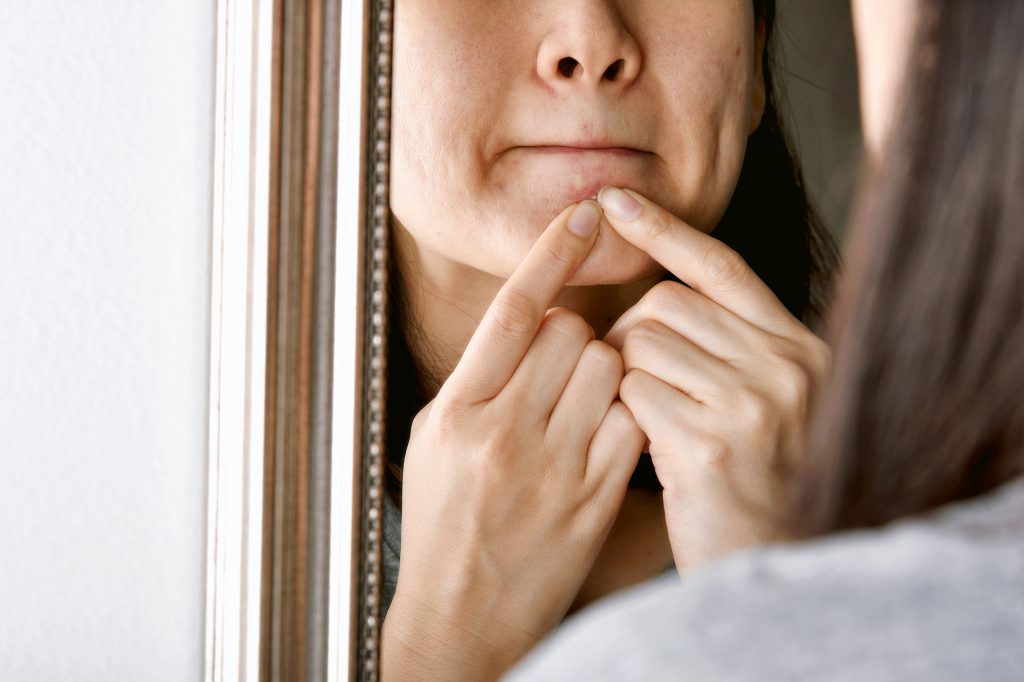Sugar is virtually everywhere these days. You can find it in obvious places like candy and cookies, but it is also in things you might not even be aware of, like bread and ketchup. And while a bit of sugar is okay and is helpful in processes like creating serotonin, too much of it can be a problem. But how much is too much? This post will teach you some warning signs of eating too much sugar!
Contents
The Danger Of Eating Too Much Sugar
As a kid, your parents probably told you something like, “if you keep eating all the sugar, your teeth will fall out,” and while too much sugar can be devastating to your dental health, that is far from the only problem too much sugar can create in your body. One of the most significant issues the overconsumption of sugar can bring is diabetes. Diabetes is a chronic condition that affects how your body makes and uses insulin. Eating too much sugar increases fat storage, which, in turn, can lead to your body resisting insulin and causing you to develop diabetes.
Another scary side effect of too much sugar is increasing your risk of heart disease. Heart disease is the leading cause of death in America, so anything possibly linked to this condition is worth being aware of. Eating things high in sugar can trigger inflammation and raise blood sugar and blood pressure. All of which are major risk factors for heart disease. But by being mindful of your sugar intake, you can limit these risks!
Signs You’re Eating Too Much Sugar
While those conditions can be severe and potentially deadly, they won’t happen overnight. It often takes many years of a high-sugar diet before you notice any dangerous health conditions like diabetes or heart disease. And the good news is there are other minor signs of eating too much sugar that can be warnings you are on a destructive path. Here are a few to be aware of:
Weight Gain
One of the most obvious signs you’re eating too much sugar is weight gain. When you consume sugary snacks and drinks, your body will burn through those calories quickly. This will lead to an increase in hunger and the need for more sugar. And when you continue on that cycle, the weight gain can be significant.
Furthermore, too much sugar can affect your gut biome, which significantly affects your body’s ability to regulate your metabolism. When the bacteria in your gut are disrupted, your metabolism slows down. And if that happens, your body will no longer burn calories at the same rate it did before, and it stores those extra calories as fat cells.
Acne
Acne is a common skin condition that can be both embarrassing and painful. While many factors can contribute to the development of acne, one of the most common is diet. In particular, consuming too much sugar can trigger a cascade of events that ultimately lead to acne lesions. When the body metabolizes sugar, it produces a compound called glycation. Glycation damage leads to inflammation and the destruction of collagen, which can result in the formation of wrinkles and other signs of aging.
However, glycation also plays a role in the development of acne. Sugar molecules attach to proteins in the body, including those that make up the cell walls in hair follicles. This attachment creates cross-links, which weaken the cell walls and cause them to rupture. The contents of the follicle then spill out into the surrounding tissue, resulting in inflammation and acne lesions.
Fatigue
Most people are familiar with the feeling of fatigue. That state of tiredness makes it challenging to concentrate or even keep your eyes open. While there are many different causes of fatigue, one often-overlooked culprit is sugar. That’s right, eating too much sugar can lead to feelings of exhaustion and lethargy.
There are two main reasons for this. First, when you eat sugary foods, your blood sugar levels spike. This gives you a brief burst of energy, followed by a sharp drop. This can leave you feeling foggy-headed and drained. Second, sugar has a dehydrating effect on your body. This can lead to dehydration, which can further contribute to feelings of fatigue.
Sugar Cravings
We’ve all been there: you finish a satisfying meal only to find yourself craving something sweet a few hours later. While a post-dinner craving for sugar is usual, persistent cravings throughout the day may indicate that you’re eating too much sugar. When you eat sugary foods, your blood sugar levels spike and then crash, leading to feelings of fatigue and irritability. Then, your body craves more sugar to bring your blood sugar levels back up, setting off a vicious cycle.
This cycle can continue for years before you realize it contributes to fatigue and other health issues. It might also lead to other unhealthy behaviors, such as consuming sugary treats and other unhealthy foods.
Trouble Sleeping
If you’re having trouble sleeping, you may be surprised to learn that sugar plays a significant role. Sugar affects the body in several ways that can lead to sleeplessness. One of the biggest reasons for this is blood sugar levels. In addition, sugar increases the amount of cortisol, a stress hormone, released in the body. And increased levels of cortisol can make it difficult to fall asleep at night.
Another reason why sugar affects sleep is that it suppresses melatonin, a hormone necessary for sleep regulation. When your body doesn’t produce enough melatonin, falling asleep and staying asleep can become much more difficult. In addition to these issues, eating too much sugar can lead to weight gain and other health conditions that disrupt sleep patterns.
Tips For Cutting Back On Sugar
As you have learned, the overconsumption of sugar can cause many different problems in your daily life. However, cutting back on sugar can be difficult, especially if you have a sweet tooth. Here are some tips for reducing your sugar intake:
- Start by gradually reducing the sugar you use in your coffee or tea. You may not even notice the difference after a few weeks.
- When baking, experiment with using less sugar or alternative sweeteners like honey or maple syrup.
- Cut out sugary snacks like candy and cake. Instead, reach for healthier options like fruits or nuts.
- Drink water instead of sugary beverages like soda or juice.
- Get in the habit of reading labels to check for hidden sugars in packaged foods.
By following these tips, you can start to cut back on your sugar intake and improve your overall health.
Know The Signs Of Eating Too Much Sugar!
When it comes to eating too much sugar, your body can present many symptoms, from trouble sleeping to trouble concentrating. Luckily, there are many ways that you can reduce your sugar intake and improve your overall health. By following the tips listed above and making simple changes to your diet, you can feel more energized and focused in no time. So what are you waiting for? Start cutting back on sugar today!









